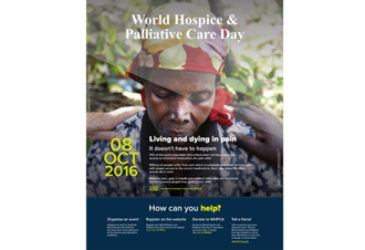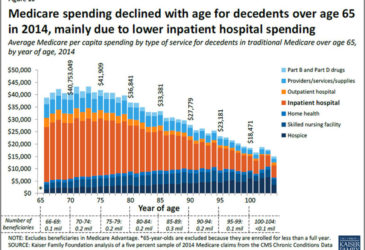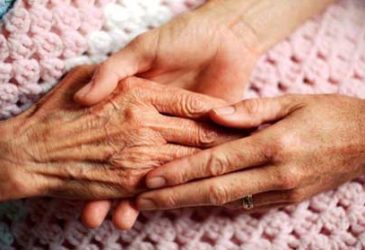November could be considered the kick off to the holiday season, but is also host to National Hospice and Palliative Care Month. This is the perfect time to talk about dealing with losing a loved one during these usually happy times. The holidays in which family’s gather for meals and gift exchange tend to be the...
read more...
Dealing with Loss During the Holidays
World Hospice and Palliative Care Week: Living and Dying in Pain-It Doesn’t Have to Happen

Every year, the first full week of October marks World Hospice and Palliative Care Week. It is a day of action to celebrate and support hospice and palliative care around the world. The hopes behind having World Hospice Week is to increase the availability of hospice and palliative care throughout the world by creating opportunities to speak...
read more...
Younger Seniors Take the Most Advantage of Medicare for End of Life Care

Statics show younger seniors (65-75) are spending more of their medicare on end of life care, than older seniors. This demographic amasses the largest medical bills. Kaiser researchers said their findings suggest that providers, patients and their families may favor more costly, lifesaving care for younger seniors, and turn to hospice care when patients are older....
read more...
Loved Ones Tribute Stories
Accredited Hospices of America is embarking on a heartfelt project. We will be posting tribute stories of some of our beloved patients by their families. We will feature a story once a week and will be shared on all our social media accounts. The stories will include a bio of their loved one, Pictures, like...
read more...
Hospice-Caring for More than Cancer
A common thought of many is that hospice care is only for cancer patients or HIV sufferers. This isn’t true. Hospice care covers a wide range of medical issues at the end of life- heart failure, dementia, ALS, and COPD are just a few. Hospice care should be considered after the patient has decided to end...
read more...
The Idea of a “Good Death” and Hospice
No one likes to think or talk about death and dying. But it’s a reality we all face-more and more people are taking charge of how they will live out their final days. This becoming known as the “good death.” Through life, we want to have as many new experiences as possible but in the...
read more...
Hospice and Cultural Consideration

Houston is known for being the top city for cultural diversity, passing New York City and Los Angeles. Understanding how different cultures approach death is very important. Through hospice, we provide grief services for everyone involved, but cultural practices are often overlooked. There are many transitions that happen at the end of life and through...
read more...
Telling a loved one they have cancer
Contact: Debbie Mosbacher 832.408.7999 accreditedhospicesofamerica.com May 23,2016 Sometimes family members are the first to learn of a loved one’s cancer diagnosis. How does a family decide if they should or when they should tell the person who has the cancer? Are some people too emotionally fragile, too young, or too old to know? Most people...
read more...
The role of a Hospice Nurse
Contact: Maria Patino 832.408.7999 accreditedhospicesofamerica.com Hospice and palliative care nurses work in collaboration with other health providers (such as physicians, social workers, or chaplains) within the context of an interdisciplinary team. Composed of highly qualified, specially trained professionals and volunteers, the team blends their strengths together to anticipate and meet the needs of the...
read more...
Care and placement options in the final stages of life
Contact: Maria Patino 832.408.7999 accreditedhospicesofamerica.com A terminally ill patient’s deteriorating medical condition, increased physical safety needs, and the 24-hour demands of final-stage care often mean the primary caregiver will need additional in-home help, or for the patient to be placed in a hospice or other care facility. In many cases, patients prefer to remain at...
read more...

